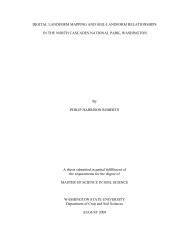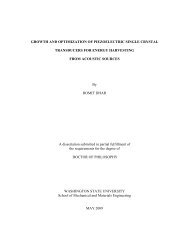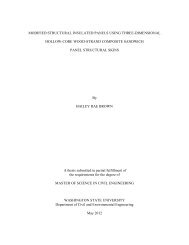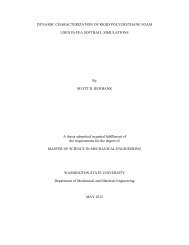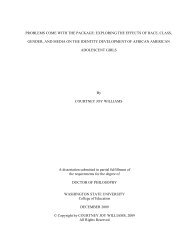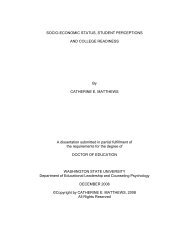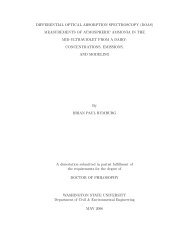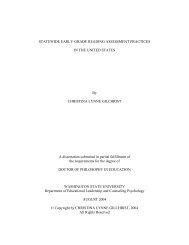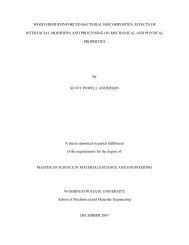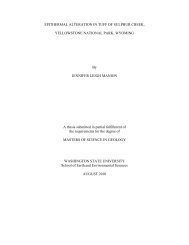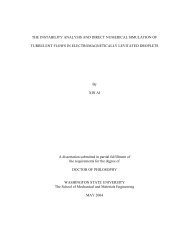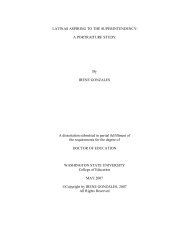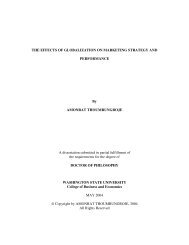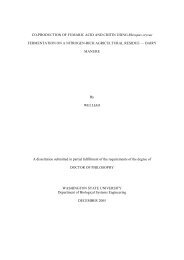the moral reasoning of student athletes and athletic training students
the moral reasoning of student athletes and athletic training students
the moral reasoning of student athletes and athletic training students
Create successful ePaper yourself
Turn your PDF publications into a flip-book with our unique Google optimized e-Paper software.
Commission for Accreditation <strong>of</strong> Athletic Training Education Programs (CAATE) is responsible<br />
for establishing <strong>the</strong> curriculum <strong>of</strong> <strong>athletic</strong> <strong>training</strong> <strong>student</strong>s at accredited programs. Therefore,<br />
perhaps CAATE can have a role in encouraging or requiring programs to address <strong>moral</strong> or<br />
ethical education. Outside <strong>of</strong> accrediting authorities, however, educators can play a significant<br />
role in affecting change by incorporating elements <strong>of</strong> cognitive dissonance <strong>and</strong> a challenging <strong>and</strong><br />
discussing <strong>student</strong>s’ personal points <strong>of</strong> view with relationship <strong>moral</strong> principles <strong>and</strong> subject<br />
matter. The responsibility lies with all members <strong>of</strong> society, but <strong>the</strong> institution <strong>of</strong> higher education<br />
seems optimally equipped with opportunity <strong>and</strong> mission to affect change in <strong>moral</strong> <strong>reasoning</strong>, one<br />
small step to changing behavior.<br />
Student <strong>athletes</strong> <strong>and</strong> <strong>athletic</strong> <strong>training</strong> <strong>student</strong>s have one very important commonality <strong>and</strong><br />
that is <strong>the</strong> fact that both are <strong>student</strong>s in a system <strong>of</strong> higher education. For <strong>the</strong> most part, <strong>the</strong>se<br />
<strong>student</strong>s are willing to do what <strong>the</strong>y are told. They usually attend classes, take exams, complete<br />
assignments <strong>and</strong> earn degrees. The question is, during <strong>the</strong>se four to five years, could <strong>the</strong> system<br />
<strong>of</strong> higher education take more responsibility to intentionally challenge its <strong>student</strong>s to develop a<br />
strategy to utilize <strong>and</strong> practice <strong>moral</strong> <strong>reasoning</strong>? What better place exists to pose such a<br />
challenge to developing character <strong>and</strong> members <strong>of</strong> society than <strong>the</strong> institution <strong>of</strong> higher<br />
education?<br />
82



